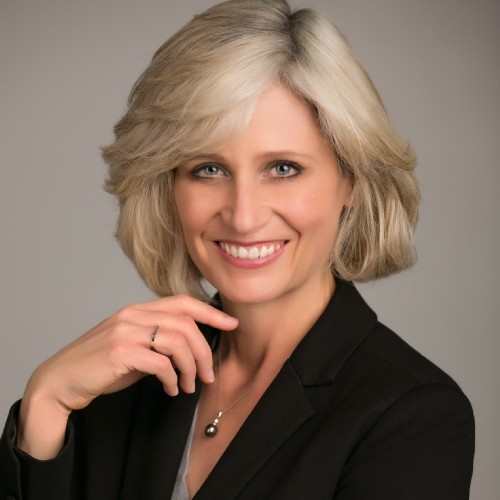Relationships are not simply the “icing on the cake” for a life well lived. Relationships are the cake. — Daniel J. Siegel, MD
Humor me for a minute and pause to think about a time in your past where you felt really engaged in your work; where time flew by and you looked forward to the day. If you don’t have such a memory, think about a time in your personal life where you were most happy.
Got one?
Now, think about the people in your life at that time. What was the quality of your relationships? If you’re anything like every workshop participant who’s answered this question, it’s likely that you had at least one trusting, easy relationship at work and home, where you felt like you could speak your mind without judgment; where laughter was abundant and conversations were easy. And it’s also likely that you didn’t have a toxic boss, spouse, colleague, or acquaintance.
We simply cannot be our most brilliant selves without supportive relationships — we’re genetically wired to connect with others. Before we had the brain scans to prove this, Gallup proved it decades ago through their exhaustive research on employee engagement. They came up with twelve questions that measured how satisfied, motivated, and connected someone was at work. Among the questions was: “Do you have a best friend at work?” Sadly, in my experience, many executives found this question was trivial and left it out of employee engagement surveys. Now we have irrefutable science to prove its importance to our mental health and performance.
From an evolutionary standpoint, the most important aspect to survival is the ability to develop relationships with others. John Medina, author of Brain Rules, explains, “Our ability to understand each other is our chief survival tool. Relationships helped us survive in the jungle and are critical to surviving at work and school today.” Despite the fact that our well-being depends upon fulfilling connections with others, startlingly, twenty-five percent of Americans cannot name a single person they feel close to(according to a 2006 Purdue University study). We are experiencing a loneliness epidemic.
In our era of social media, it’s easy to stay informed and semi-connected. But social media platforms like Facebook and Instagram aren’t a substitute for real connections. While we may get a nice little dopamine hit every time we click “like” or get liked back, these platforms actually cause us pain — the pain of comparison and inferiority. Some have dubbed the simultaneous feelings of congratulation and envy we often experience upon seeing a friend’s shiny life as “frenvy.” A study at Denmark’s Happiness Research Institute found that people who gave up Facebook for one week reported suffering less envy and being “more satisfied” with their lives than those who continued using the site.
When we feel ostracized, lonely, or misunderstood, the same part of the brain lights up (the dorsal anterior cingulated cortex, or dACC) that would if we hammered our thumb. Neuroscientists refer to this relationship-based pain as “social pain.” Social pain may be worse than physical pain, because while your sprained ankle will heal, your mind repeats the thoughts and feelings associated with social pain over and over, igniting the pain center of your brain each time. And social pain manifests as physical pain in addition to psychological and emotional pain. Anyone who’s experienced “heartache,” “heartbreak,” or “homesickness” knows that those terms are more than metaphor: they aptly describe our experience of physical distress. More bad news about social pain: according to Amy Banks, author of Wired to Connect: The Surprising Link Between Brain Science and Strong, Healthy Relationships, relationships with people who don’t understand you may weaken neural circuits that enable you to connect in healthier ways.
In other words, being in unhealthy relationships negatively affects your brain, making it more difficult to create healthy relationships. Toxic encounters switch on our SNS (sympathetic nervous system), putting our brains into a threat state where we’re less able to access our “intelligent” brain, the prefrontal cortex. Our adrenals pump cortisol (stress hormone) into our system, increasing our heart rate, anxiety, and overall stress. Long- term exposure to toxic relationships will lead to physical and emotional burnout.
To live a brilliant life, we must attract and nourish relationships that make us happier, healthier, and more effective in all areas of life. We need people who make us laugh; pick us up on a bad day and remind us of our brilliance; trust us with their deepest thoughts and feelings; listen without judgment or trying to fix us; own their faults and accept ours; are easy to be around; encourage us to strive for greatness through their words and own example; and help us reframe troubling thoughts so we can see new possibilities. We need connections with loving, trusting, dependable people who are willing to be vulnerable. And everyone needs at least one friend they can call at 3:00 AM in an emergency, knowing this person won’t hesitate to come to their rescue.

Denise is a speaker, writer, and executive coach dedicated to helping people ignite their potential, and go from burned-out (or blah) to brilliant. After a successful career in Corporate, Denise founded Brilliance Inc., a coaching and training corporation. For over a decade, she and her team have helped thousands of people feel less stressed, and have more ease and fulfillment in all areas of their lives. She knows what it’s like to overcome major setbacks: after a car accident in 2003, she was told by a doctor that she might never be able to work. Denise has been referred to as a mini Tony Robbins because of the humor, compassion, knowledge, and pragmatism she brings to helping people to transform their lives for good.

